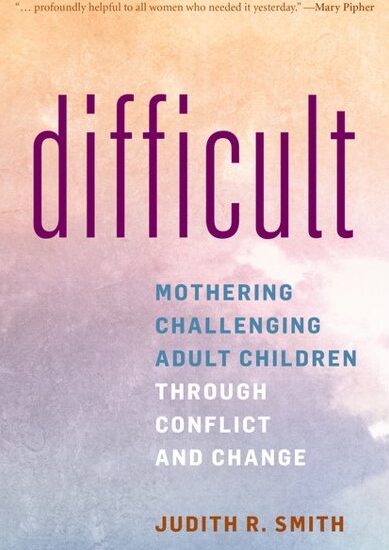 We know that many innovations require a sea change in the culture of organizations or society. This is particularly so when trying to spark innovations that can transform our health care system. On January 26th, the Centers for Medicare and Medicaid Services (CMS)held an Innovations Summit that they hoped would spark new ideas for achieving the “triple aim” of better health of people, better health care, and lower health care costs. But there were signs that the cultural change that is needed to turn around our dysfunctional health care system maybe more engrenched thatn we thought.
We know that many innovations require a sea change in the culture of organizations or society. This is particularly so when trying to spark innovations that can transform our health care system. On January 26th, the Centers for Medicare and Medicaid Services (CMS)held an Innovations Summit that they hoped would spark new ideas for achieving the “triple aim” of better health of people, better health care, and lower health care costs. But there were signs that the cultural change that is needed to turn around our dysfunctional health care system maybe more engrenched thatn we thought.
The first sign of trouble was the “networking breakfast” where nary a piece of fruit–not even fruit juice–or speck of protein was available amidst the plates of muffins and other pastries. So much for walking the talk about health eating. Good thing Michelle wasn’t there…
The second sign of trouble was the opening presentation by Don Casey, chief executive officer of West Wireless Health Institute, who providing an opening commercial for his organization. The commercials were interspersed throughout the day when some speakers spoke about their companies’ innovations. Granted, Acting Administrator of CMS and nurse Marilyn Tavenner (her credentials were not included in the program, although all of the physicians had their MD credentials included and Atul Gawande even listed his MPH) noted that the way forward would be through public and private partnerships.
The third sign of trouble became apparent by lunch. The whole day was designed to incorporate many quick presentations. By my count, nine of the morning’s 22 speakers or moderators were physicians and there were no signs of a nurse–other than credential-bare Tavenner–or a social worker. And yet, nurses and social workers are the two primary professionals who provide care coordination, which CMS is prioritizing as one of the ways to achieve the “triple aim”. I have never seen so many physicians claiming to be experts in care coordination. It was stunning. I kept wondering why we would pay the most costly health care provider and the one with the greatest expertise in differential diagnosis and medical treatment of complex diseases to spend his or her time coordinating patients’ care.
One of the primary themes of the day was that we can transform health outcomes if we put a physician in an office with the right technology. Physician Christopher Chen even had a slide that said “no physician extenders” (I hate the phrase) on a slide. He would have a robot bring patients their medications at the end of an office visit.
Chen talked about the need to change the culture of physicians. But it appears that he doesn’t really want to change their culture in ways that would promote interprofessional team-based care—something that most experts in health care reform agree we must value and become skilled at doing. His “culture change” means data-driven care–physicians data about their patients readily available to drive their decision making.
I agree that all of health care providers and administrators need to be better at using data to improve systems of care. But the physician and data should not make the decision about what’s best for individual patients. Patients own that decision. As Amy Berman, RN, Senior Program Officer for the John A Hartford Foundation who is living with incurable breast cancer, pointed out in her quick talk, this requires patients who are fully informed about their options and health care providers who have discussed and know the patient’s and family’s goals.
And this leads me to the other theme that was troubling: reforming health care is about providers and technology—not about patients and families. There was no mention of families or patient goals in the first half of the day. It took nurse Mary Naylor, PhD, RN, of the University of Pennsylvania, to bring in the importance of making the patient and family front and center in all that we do, as happens in her Transitional Care model. (Tavenner did talk about the importance of the Affordable Care Act’s extension of insurance coverage to children up to the age of 26 under their families’ policies) Naylor and Berman reminded the audience that the real culture change will happen when patients and families are at the center of what we do.
Lots of great ideas at this summit, but too many seem mired in an old culture. We have our work cut out for us.









Shawn Kennedy / February 7, 2012
Great but very disheartening post. One would hope between Tavenner and Wakefield we’d move away from the same old, same old.
Any bright ideas out there on what it will take to change things?
/
Pingback: Innovation and Culture Change: Will It Happen in Health Care … | health eating / February 7, 2012
/
Sallie Porter / February 7, 2012
Very interesting post. Physicians are automatically seen as experts in any area they wish including nursing. Nurses are rarely seen as experts in anything by anyone, except other nurses (and a few choice patients).
/
Barbara Glickstein / February 7, 2012
Bad food plus terms like physician extenders give me a stomach ache. I have a new policy (a couple of years old now) that I no longer attend conferences or talks that do not represent the general population – so if they are all men, all white and talking about innovation and the future – I don’t care.
/
Liz Seegert / February 8, 2012
How can there be any real health reform until there is first reform of an outdated, archaic mindset about medicine and the role of providers? If these physicians represent the “leaders” among MDs then we have a very long road ahead.
/
Pingback: Getting Primaried » Notes on Nursing / February 15, 2012
/